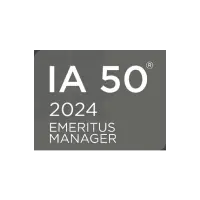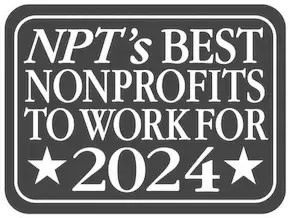2019 Annual Report Letter: Through Crisis, We Partner with Communities to Build Strength and Sustainability
By Ellis Carr, President & CEO, and Daniel Varner, Board Chair
Over the past several weeks, the COVID-19 pandemic has fundamentally changed the world for all of us. Our hearts go out to everyone who has been—and will continue to be—affected by this devastating event.
We want to express our deepest gratitude to those who are serving on the front lines during this crisis: doctors, nurses and other health care workers, pharmacists and grocery store employees, restaurant owners and delivery crews and everyone who has sewn masks and donated food and supplies to those in need. We are truly indebted to them for their sacrifice and hard work.
While those brave individuals give us hope, we are mindful that the pandemic has laid bare the tragic consequences of systemic racism and disinvestment as well as the fragility of our safety net. In particular, health care facilities are underequipped and overwhelmed, millions of workers have lost their jobs, schools are challenged with how to educate students, families struggle to pay their rent and feed their kids and small business owners fear that they will not survive the sudden economic decline.
In particular, the health and economic impacts as a result of this pandemic are hitting Black, Latinx and Native communities disproportionately. The statistics uncovered by APM Research Lab are startling.
As an organization that for decades has been at the forefront of efforts to build strong, sustainable communities, we are having to ask ourselves two fundamental questions in the face of the suffering caused by COVID-19: What are our responsibilities to the communities we serve, and do we have the responsibility to do more?
Although those two questions have a new urgency in this time of crisis, they have always been at the heart of our planning and our work at Capital Impact Partners.
Back in 2016, we launched a new five-year strategy to expand our organization’s reach and impact. The strategy is constructed on four key pillars: address systemic poverty, create equity, build healthy communities and promote inclusive growth.
These pillars have continued to reflect our understanding of our responsibilities to our communities, and we can say with confidence that we have worked diligently over these past five years to transform those pillars from theoretical principles to tangible, impactful actions.
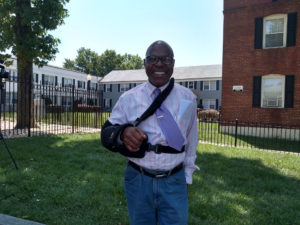
We are committed to adressing poverty and creating equity, and that is no different during the COVID-19 pandemic. Our annual report stories show how we work with communities to create opportunity.
We have broadened our lending, for example, increasing our affordable housing lending by 22 percent. I invite you to read in our stories section below about our commitment to supporting mission-driven real estate developers who are creating high-impact projects in three cities experiencing some of the most daunting housing disparities. We also have stepped up our work to expand access to healthy foods and broadened our focus on building more inclusive food systems.
In addition, we also applied these pillars to focus on root cause issues. This included our Equitable Development Initiative, a program created to ensure that developers of color have the training and mentorship to build successful careers and truly represent the diversity in their communities and help shape their futures. Based on two successful cohorts in Detroit, we expanded the program to Washington, D.C. and launched a third program in Detroit last year.
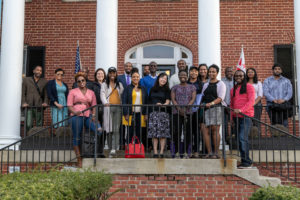
Roots causes, like systemic racism, are what hold communities back from success. Our Equitable Development Initiative is created to expand opportunities for real estate developers of color.
With an award we received from the CDFI Fund, we are taking this even further by creating a loan product specifically tailored to provide access to financing for these developers. Many of them have often been excluded from receiving financing due to the constraints of traditional lenders.

Communities of color often have less access to financing to support their entrepreneurial goals. Our Entrepreneurs of Color Fund is providing capital to entrepreneurs in the D.C. area so that they can create economic prosperity and wealth.
With support from JPMorgan Chase, we partnered with the Washington Area Community Investment Fund (Wacif) and the Latino Economic Development Center (LEDC) to expand Chase’s Entrepreneurs of Color Fund in D.C. Our goal is to provide the financial backing that so many talented and creative individuals need to launch and scale their businesses—oftentimes in neighborhoods devoid of small business that represents their needs. Through LEDC and Wacif, in just our first year we deployed $2 million, provided nearly 600 small businesses with loans and technical assistance and supported just under 500 quality jobs being created or retained. More about our greater impact in D.C. can be seen in the community impact maps section of our annual report.
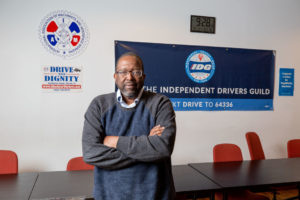
Martin and his fellow New York City drivers have come together to find economic stability through the cooperative model (Independent Drivers Guild).
Also, the 2019 round of our annual Co-op Innovation Awards highlighted the work of three employee-owned-and-operated organizations that are leading initiatives to advance workers’ rights as well as wealth building and asset creation programs for immigrant workers. You can meet Martin, who brought his family to the United States in 1991 and is helping to lead his organization’s efforts.
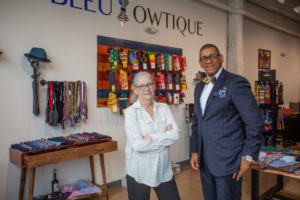
Women are an integral element of diversity; they are raising issues and leading charges to create the change that we want to see in the world. We are highlighting just some of their stories.
In our stories of impact, we also feature three female leaders, who we have partnered with across a number of years to support social impact in health care, education and housing. They are a testament to that fact that recognizing real leadership requires us to acknowledge the diversity of those who are leading change in their communities and support them.
Lastly, no strategy to address diversity, equity and inclusion would be complete without looking inward to really question who we are as an organization. Under the guidance of The Justice Collective, we completed an internal and external analysis to identify 33 opportunities across five focus areas to strengthen our focus on these principles.
Through this process we also formulated a new Equity vision to guide us an organization:
Capital Impact Partners envisions a world where everyone prospers. We embody equity as a workplace by embedding such in our structure, culture, policy and products. In partnership with community, we endeavor to shatter the barriers created by systemic oppression in the pursuit of equitable access to resources that promote generational wealth development.
With that vision in mind, we have identified key internal priorities to address in the short, medium and long term. In addition, 2020 is the final year of our five-year strategic plan, and we will begin developing a new strategic plan later this year to reflect these key priorities as well as our new equity vision.
We also plan to implement innovative ideas that our board and leadership have been exploring over the past year to expand our range of tools and our impact in our communities. These initiatives not only will push us as an organization but also will help us redefine what it means to be a CDFI. Stay tuned for more about this in the coming year.
We will advance all of these efforts for social and economic justice by continuing our strategy to focus in key geographic regions including California, Texas, Michigan, Washington, D.C. and New York. Only by standing shoulder-to-shoulder with communities and engaging them to understand their needs and barriers to success can we shape our work to be most impactful.
In the immediate term, the COVID-19 pandemic has required us to be nimble and shift our focus and efforts to respond to urgent needs—especially for communities of color who may likely be dealing with the impacts for years, if not decades, to come. At the same time, the work we have done to pivot our organization during our five-year strategy positions us well to be there for our communities and continue to break down barriers to success.
And while Community Development Financial Institutions (CDFIs) like Capital Impact are oftentimes the first to be there in times of crisis, we know we cannot go it alone. We continue to rely on community organizations, investors and foundations, government agencies and CDFI partners to be part of this important fight.
We are deeply grateful for your support for Capital Impact Partners and for your commitment to helping us create communities of opportunity built on a foundation of equity, inclusiveness and cooperation.
We look forward to working with you in 2020 and beyond.
Ellis and Dan
